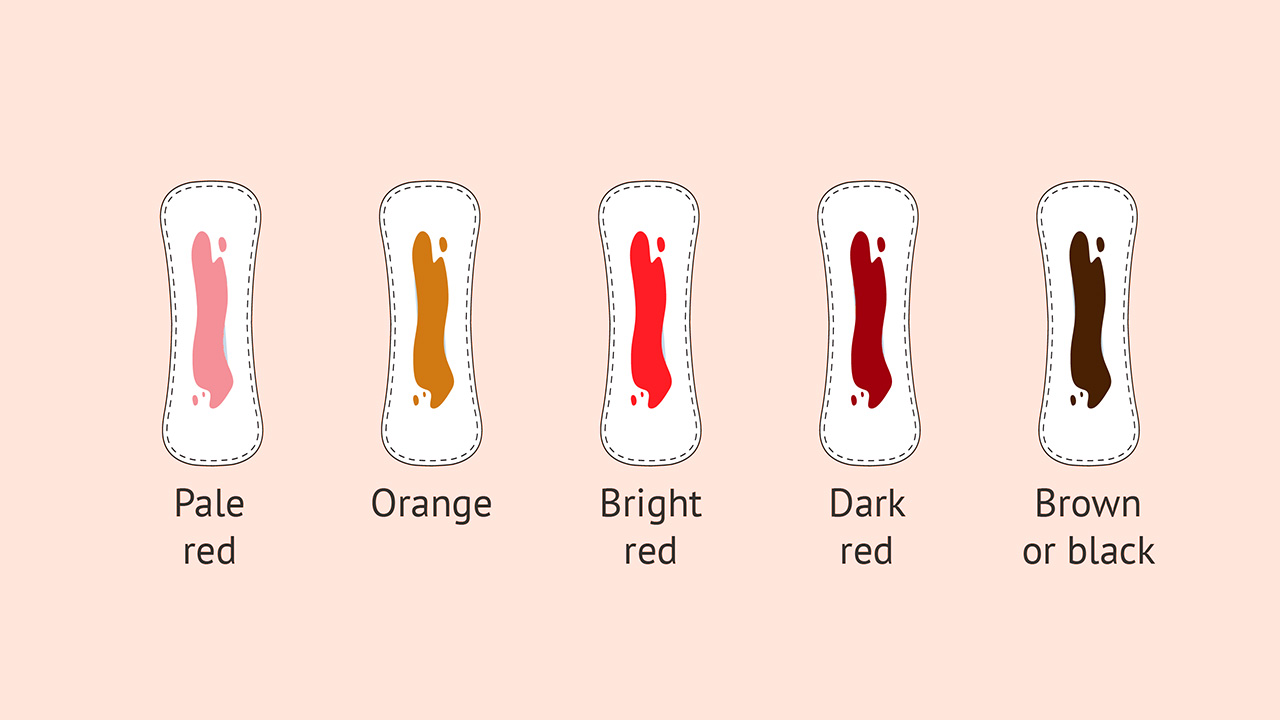Having brown blood in periods is a common phenomenon. Period blood varies in color for various reasons or underlying conditions ranging from dark red to dark brown. Experiencing brown blood during your periods can be influenced by several causes, such as:
Old Blood
One of the primary reasons for having brown blood is oxidation of the blood. When blood sits longer within the uterus, blood oxidizes, changing color from red to brown. It mainly occurs at the start and end of your period.
Light flow
Sometimes, during the menstrual cycle, blood flow is lighter, giving the blood more time to oxidize, resulting in brown blood.
Hormonal imbalance
In some cases, such as PCOS or stress, hormonal imbalance occurs, which causes the uterine lining to take longer time to shed. This mechanism leads to getting brown blood in periods.
Ovulation spotting
The release of an egg from the ovaries that typically occurs 10 to 14 days after getting your period is termed ovulation. During ovulation, the uterine lining sheds lightly due to elevated estrogen levels, leading to spots that can be presented in a brown color.
Implantation bleeding
One of the earliest indications of pregnancy can be implantation bleeding. Light, brown spotting occurs when a fertilized egg attaches to the uterus lining.
Birth control
Being on birth control can interrupt the average hormonal balance, affecting the colour and consistency of the period blood, leading to brown blood in your periods. Some women may also experience breakthrough bleeding, which is a term used to describe unexpected bleeding or spotting that can appear as a brown discharge between periods.
Lochia, also known as postpartum bleeding, is a vaginal discharge that occurs after giving birth. It is expected and last for about a week, starting with bright red and gradually turning brown due to the slowing down of the flow. After giving birth, experiencing lochia is expected, which is a vaginal discharge. It lasts for the week, starting with bright red and gradually turning brown due to the slowing down of the flow.
When Should You Be Concerned About Brown Blood?
- Unusual heavy brown bleeding
- Unpleasant odour
- Pain
- Irregular periods
- Brown spotting during pregnancy
Getting brown blood in your periods is a harmless phenomenon. Various reasons can cause it. Tracking your cycle, proper hydration, and keeping an average hormonal balance can even reduce the potential risk of any period-related disorder. If you experience brown blood frequently and other uncomfortable symptoms, consult a healthcare specialist for tailored advice.




